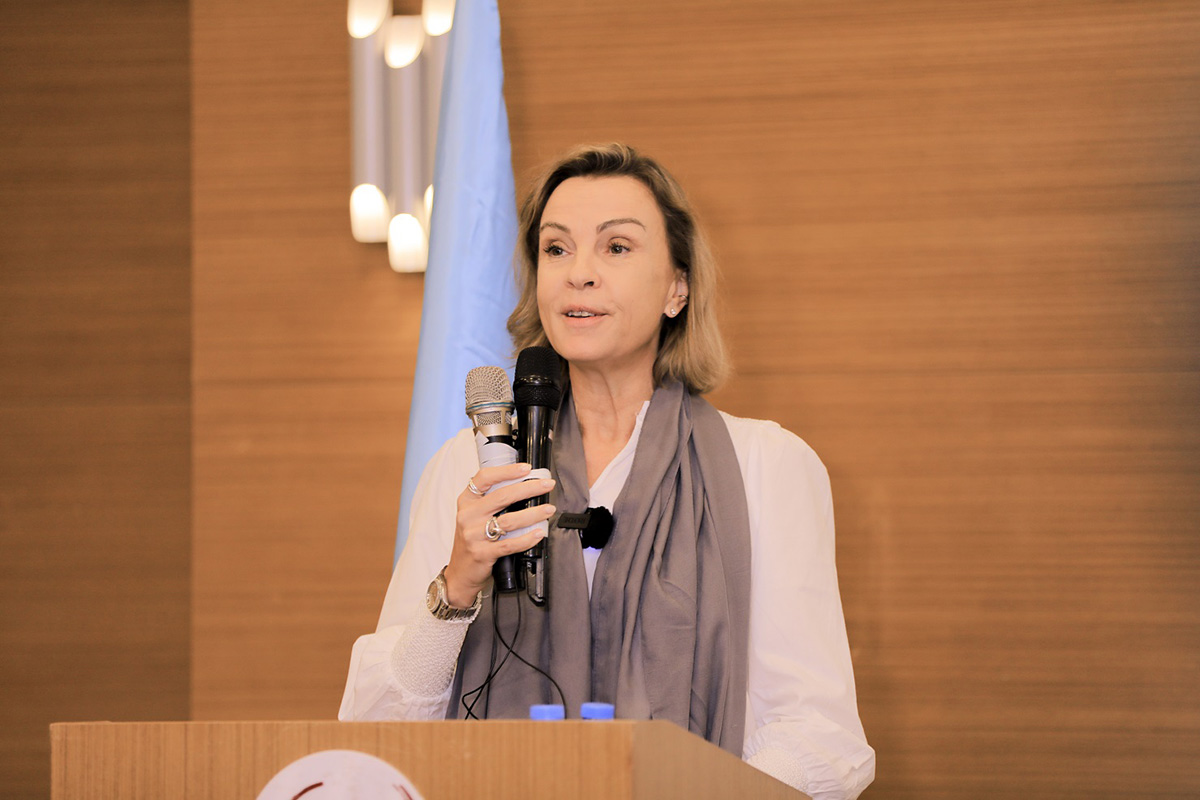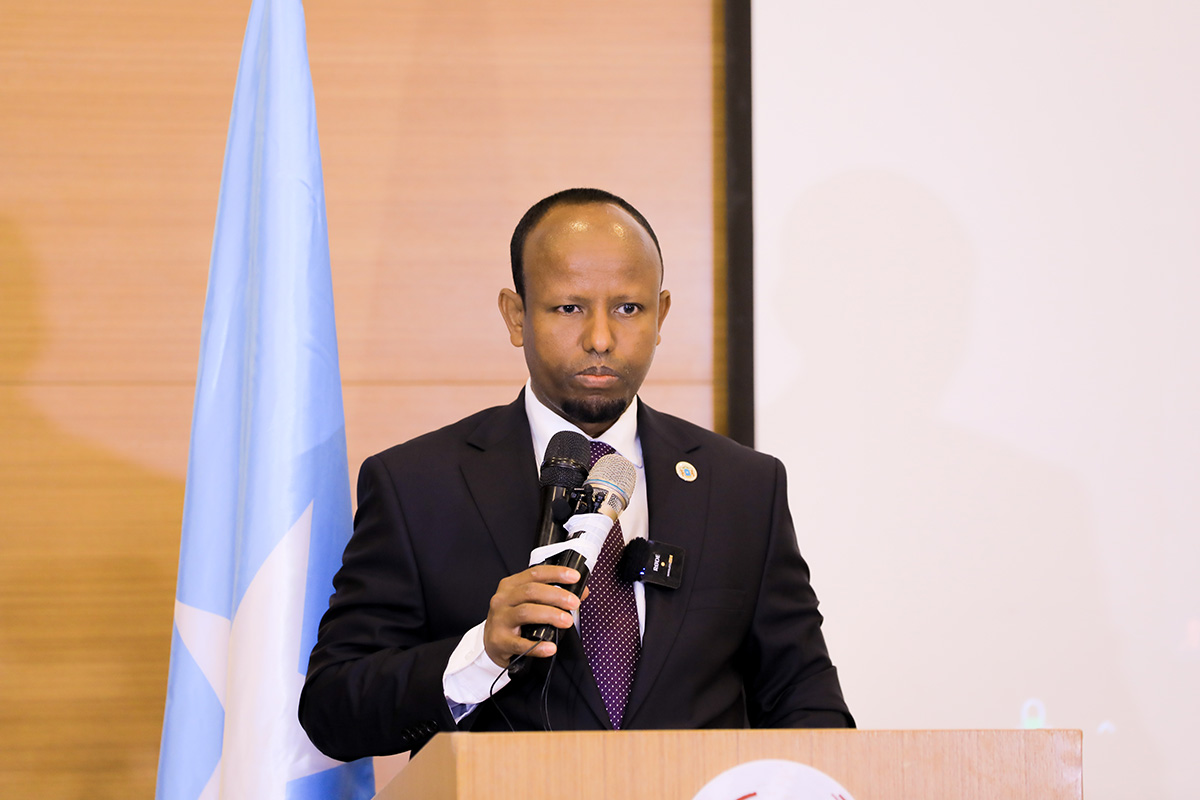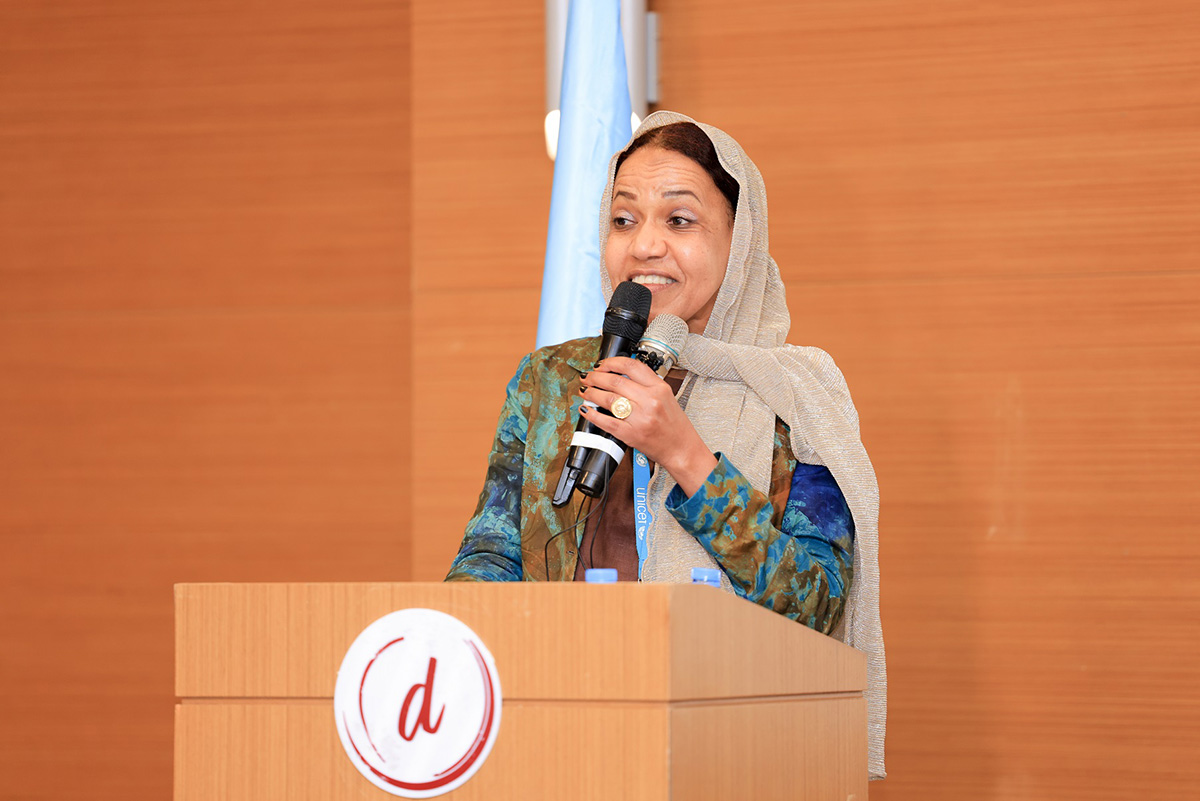About 40% of the deaths were of young children.
 22 January 2025, Mogadishu, Somalia – A study released today by the Somali Federal Ministry of Health, UNICEF and WHO estimates that 71 100 people may have died between January 2022 and June 2024 because of the drought that ravaged large parts of Somalia in 2022. About 40% of these deaths were estimated among children under the age of 5.
22 January 2025, Mogadishu, Somalia – A study released today by the Somali Federal Ministry of Health, UNICEF and WHO estimates that 71 100 people may have died between January 2022 and June 2024 because of the drought that ravaged large parts of Somalia in 2022. About 40% of these deaths were estimated among children under the age of 5.
The report, From insight to action: an update on mortality patterns in Somalia, was released today in Mogadishu by Minister of Health Dr Ali Hadji Adam Abubakar. In attendance were Mr George Conway, Deputy Special Representative of the United Nations Secretary-General and Humanitarian Coordinator, Ms Wafaa Saeed, UNICEF Representative, and Dr Reinhilde Van de Weerdt, WHO Representative in Somalia.
The study, the fifth and final report in a planned series, provides a retrospective analysis of the impact of the drought on population mortality across Somalia during a 30-month period, which includes the 2022 drought that affected 7.9 million people, nearly half the population, and brought the country to the brink of famine. With the concerted efforts of the Government of Somalia and its humanitarian partners, famine was narrowly averted but Somalia was left counting the residual toll on human lives.
Commissioned by UNICEF and WHO and carried out by the London School of Hygiene and Tropical Medicine, Imperial College London, and Somalia’s SIMAD University, the study is an update on the first report published in March 2023 that estimated 43 000 excess deaths attributable to the 2022 drought. This latest study observes that most excess deaths occurred in the south-central regions of Somalia, including Banadir, Bay, and Lower Shabelle. Despite high levels of food insecurity, the north-east regions experienced relatively low levels of mortality.
 “For my Ministry, our focus is on creating a strong and robust health system as the cornerstone of a healthy and thriving Somali society,” says Health Minister Dr Ali Hadji Adam Abubakar. “At the heart of this approach is delivering health and nutrition services in an integrated manner, at the lowest unit of the health delivery chain, and in a way that gives priority to vulnerable children and women.”
“For my Ministry, our focus is on creating a strong and robust health system as the cornerstone of a healthy and thriving Somali society,” says Health Minister Dr Ali Hadji Adam Abubakar. “At the heart of this approach is delivering health and nutrition services in an integrated manner, at the lowest unit of the health delivery chain, and in a way that gives priority to vulnerable children and women.”
“The findings of this study highlight the profound impact that the 2022–2024 drought has had on the lives of the Somali people. With over 70 000 deaths, the majority of which were children, this is a stark reminder of the urgent need for continued support and resilience-building efforts in Somalia,” says WHO Representative Dr Renee van De Weerdt Renhilde. “This also underlines the critical importance of strengthening Somalia’s health emergency prevention, preparedness, readiness and resilience system to effectively respond to emergencies and provide sustained care for people in need. WHO continues to collaborate with the Somali government and partners to ensure that communities are not only protected during crises, but also empowered to withstand and recover from future shocks.”
 “This report serves as a serious and sad reminder of the devastating impact of climate change on vulnerable families in Somalia,” says UNICEF Representative Wafaa Saeed. “As resources to respond to humanitarian needs have become more limited, the government and its partners must continue to explore innovative investments to expand the reach of integrated life-saving services, including health, nutrition, water and sanitation. Given the recurring nature of climate-induced crises, we must also scale up investments in community resilience to future shocks, anticipatory action and prevention of disease outbreaks.”
“This report serves as a serious and sad reminder of the devastating impact of climate change on vulnerable families in Somalia,” says UNICEF Representative Wafaa Saeed. “As resources to respond to humanitarian needs have become more limited, the government and its partners must continue to explore innovative investments to expand the reach of integrated life-saving services, including health, nutrition, water and sanitation. Given the recurring nature of climate-induced crises, we must also scale up investments in community resilience to future shocks, anticipatory action and prevention of disease outbreaks.”
Recurrent shocks from climatic events such as drought and floods, as well as conflict and insecurity, and disease outbreaks, continue to exacerbate humanitarian needs in Somalia, alongside underlying factors such as widespread poverty, lack of diversified livelihoods and equitable economic growth, insecurity and marginalization, and weak basic service delivery systems.
The latest report by the Integrated Food Security Phase Classification initiative, a food security partnership that includes governments, United Nations agencies, nongovernmental organizations and others, released in September 2024, shows that extreme acute food insecurity remains widespread, with 4.4 million people predicted to experience crisis levels of hunger and 1.6 million children expected to be acutely malnourished this year, placing them at higher risk of death and permanent developmental delay.
A summary of the report can be downloaded here.
For additional information, please contact:
Federal Republic of Somalia Ministry of Health and Human Services:
UNICEF: Victor Chinyama,
WHO: Myriam Haberecht,


